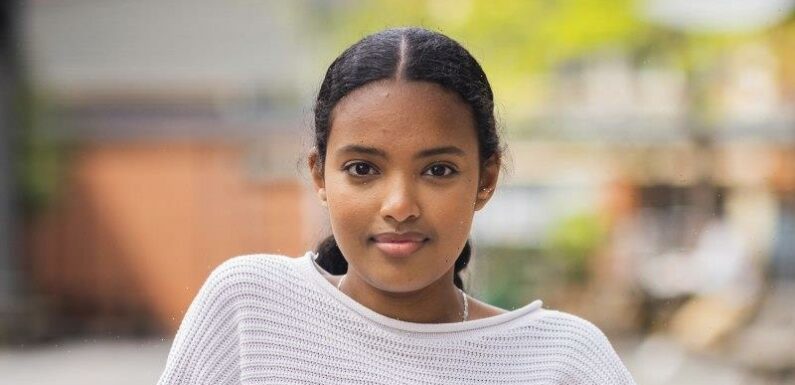
African-Australian community leaders have called for anti-racism training in Victorian schools after students described experiencing race- and religion-based discrimination.
Students of African heritage have told researchers they felt more heavily policed than non-African students, were suspected of cheating if they did well and were encouraged to leave school rather than complete the VCE even if their marks were good.
Most African-Australian students feel they have been discriminated against because of their race.
Although many teachers were reportedly supportive, students said their complaints of racism were often not taken seriously.
Nor Shanino, a member of the Andrews government’s African Communities Action Plan Implementation Committee, commissioned the research report, Racism in Schools: African Australian Students Speak Up, through his not-for-profit organisation, the Ubuntu Project.
The interview and survey-based study of current and former Melbourne students found most (87 per cent) had “experienced the feeling of being discriminated in school due to their race, ethnic background or religion”, including 95 per cent of girls and young women and 78 per cent of boys and young men.
More than three-quarters of girls (77 per cent) and more than half of boys (57 per cent) said they often felt black students were “over monitored and inspected compared to white students”.
Nor Shanino, founder of the not-for-profit Ubuntu Project, commissioned research to discover if, and how, African-Australian students experience racism.
Nearly half of boys (49 per cent) and a quarter of girls (26 per cent) said teachers had suspected them of cheating when they performed well in exams or homework tasks.
Shanino said that although small, the study showed “not only is [racism] not getting better, in some areas, it’s actually getting worse”.
Troubling examples included: “One teacher yelling out on the school PA system in front of the whole school, ‘What’s wrong with you African boys?’; one school where somebody had printed out posters that read, ‘Not all Muslims are terrorists, but all Africans are’ – and used the N-word, and it was left up for a long time.”
Emiliano Zucchi, chief executive of the Ethnic Communities Council of Victoria (ECCV), said the findings of the Ubuntu report were not surprising.
“Unless institutions like schools proactively implement anti-racism measures, racism will continue to make students from African and other migrant/refugee backgrounds feel fear, anxiety and distress,” Zucchi said in an email.
The council’s 2021 report, We Are All in This Together, said education was vital in combatting racism and recommended the state government resource and support anti-racism programs from early childhood to secondary school.
The Ubuntu study said: “In previous attempts to bring this issue up to policymakers, we faced attempts to dismiss the cases as an isolated problem or reduced to a few individuals, instead of being recognised as a systemic issue.”
“The burden of proving that the testimonies are legitimate has fallen upon the most vulnerable side,” it said.
Shanino said there were “many examples of students having the grades to go straight into VCE being told it’s better for you to do something else, [and those students were] mainly black African students”.
Dr Zuleika Arashiro, a former policy and advocacy manager at the ECCV who led the Ubuntu research, said her analysis showed “the problem of racism in schools is more systemic than we perhaps talk about; not only between students, at times it happens from authorities and when that happens there is little to address it”.
When students raised issues, they were often “delegitimised” by being asked if they were sure they had actually experienced discrimination. “The burden of understanding racism is put on the person experiencing it rather than onto the system,” she said.
Even if they were born here, African-Australian boys were commonly stereotyped as being unable to “achieve the same thing as white people can, therefore [they] shouldn’t even aim to”.
Year 11 student Arsema Mulugata is being mentored by the Ubuntu Project, which has found students from African-Australian backgrounds can experience low expectations of their academic potential, which it describes as racism.Credit:Paul Jeffers
Despite this, students proved resilient and many successfully entered careers after education, partly thanks to support from their own communities, Arashiro said.
Arsema Mulugata, a year 11 student at University High School, said being connected to Ubuntu mentor Yousra Omer had helped her to refine her aspirations from being a community engagement officer to training in midwifery or obstetrics and gynaecology when she leaves school.
“She provides me with support and tells me about different opportunities … and pathways to make sure I achieve what I want to achieve,” she said.
A Department of Education and Training spokesman said the government had been implementing initiatives recommended by the African Communities Action Plan Implementation Committee since 2020, such as homework clubs and school community liaison officers.
“We will continue to work with community representatives to identify any extra steps needed to eliminate racism from our schools,” he said.
The Morning Edition newsletter is our guide to the day’s most important and interesting stories, analysis and insights. Sign up here.
Most Viewed in National
From our partners
Source: Read Full Article


